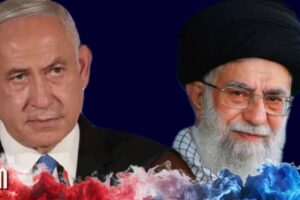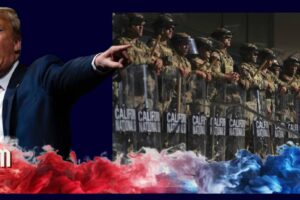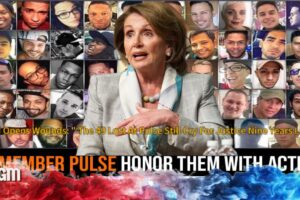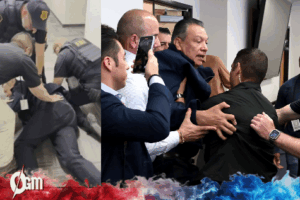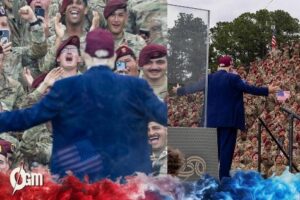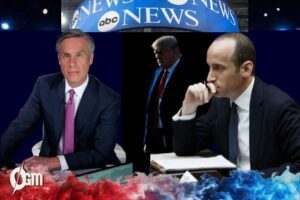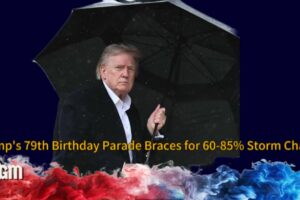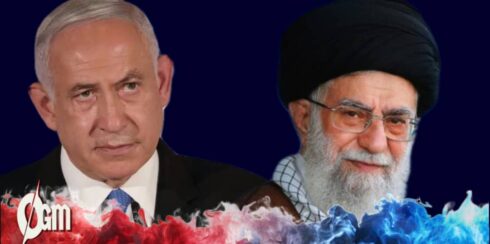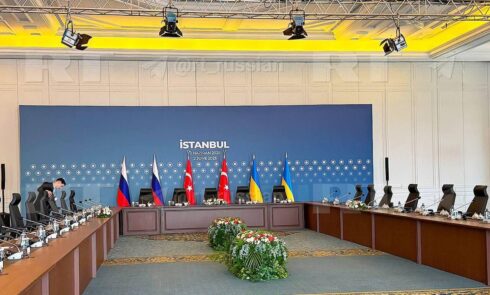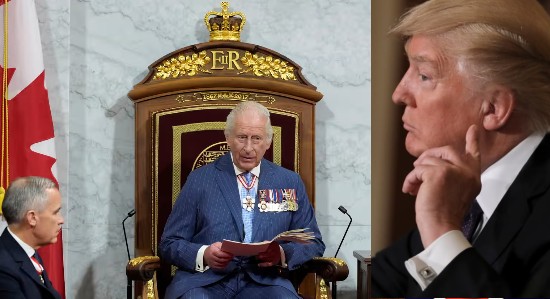Senator Padilla Handcuffed While Democracy Die Slowly | The normally routine air of a Department of Homeland Security (DHS) press briefing exploded into national controversy after Senator Alex Padilla (D‑CA), ranking member of the Senate Judiciary Subcommittee on Immigration, Citizenship and Border Safety, was physically restrained and handcuffed after attempting to pose a question to Homeland Secretary Kristi Noem.
Video footage captured Senator Padilla calmly identifying himself from roughly 10 feet away—“I am Senator Alex Padilla. I have questions for the secretary…”—before DHS agents moved in swiftly. Within seconds, he was grabbed, forced into a hallway, pushed to the ground, and cuffed by agents in FBI tactical gear. No charges were filed, and Padilla was released shortly thereafter.
This brief yet dramatic confrontation, which many say echoes deeper concerns over constitutional balance, has sparked fierce debate in Washington and beyond about the limits of federal power, oversight, and civility.
Senator Padilla Handcuffed: DHS Account Faces Scrutiny
Senator Padilla Handcuffed While Democracy Die Slowly | The DHS, alongside Secretary Noem’s press team, justified the intervention by claiming Padilla failed to properly identify himself, did not display his official Senate pin, and appeared to “lunge” toward the secretary—behavior agents reportedly interpreted as threatening. Noem, in subsequent interviews, referred to the senator only as “this man,” further agitating critics.
However, these official accounts were almost immediately undermined by widely circulated video footage. Independent reviews by multiple news outlets confirmed that Senator Padilla never closed the distance to Noem and appeared neither aggressive nor confrontational. The senator’s words were audible, and his distance consistent with a respectful inquiry.
Critics have pointed to these discrepancies as evidence of either grave misjudgment or a troubling misuse of force under the guise of security.
Political Firestorm: Reactions Across the Aisle
Senator Padilla Handcuffed While Democracy Die Slowly | Democratic leaders responded with outrage. Senate Minority Leader Chuck Schumer condemned what he called the “sickening manhandling of a United States senator.” Governor Gavin Newsom went further, calling it “outrageous, dictatorial, and shameful.” Other prominent voices—including Senators Kamala Harris, Patty Murray, Elizabeth Warren, and Representative Adam Schiff—joined in, framing the act as “an assault on democracy.”
On the Republican side, reactions were mixed. House Speaker Mike Johnson suggested disciplinary measures for Padilla—perhaps even censure—some GOP lawmakers quietly acknowledged the incident raised valid concerns. A few privately expressed that the optics of restraining a sitting senator during a public appearance were damaging and symbolic of deteriorating inter-branch respect.
OGMNews.COM
Democracy in Handcuffs: U.S Senator Padilla Dragged Out for Audacity to Question DHS Secretary
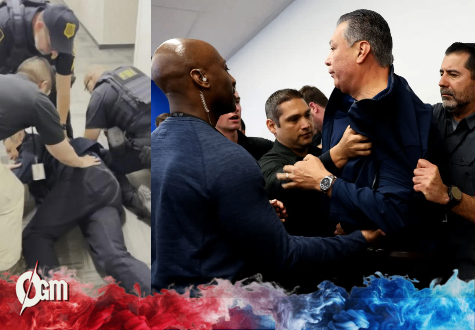
Senator Padilla Handcuffed While Democracy Die Slowly | After the dust settled, an unexpected development took place: Secretary Noem met privately with Padilla for approximately 15 minutes. According to both parties, the conversation was “productive,” and they agreed to continue discussions regarding immigration enforcement and congressional oversight. Contact information was exchanged.
Still, Noem characterized the senator’s interruption as “political theater,” while Padilla told reporters he viewed his actions as part of his constitutional duty to perform legislative oversight, particularly amid DHS’s controversial operations in California.
Whether the meeting signals reconciliation or merely a tactical de-escalation remains unclear.
Underlying Issues: Oversight, Power, and Militarization
Senator Padilla Handcuffed While Democracy Die Slowly | The incident occurred against the backdrop of a tense press conference detailing DHS’s recent surge of immigration enforcement operations in Los Angeles. The initiative includes up to 4,000 National Guard troops and 700 Marines, prompting legal challenges from California state officials.
Senator Padilla has been an outspoken critic of the campaign, raising questions about militarized tactics, federal overreach, and lack of state coordination. His attempt to question Noem during the press briefing was, according to his office, a last-resort effort after DHS repeatedly declined formal meeting requests.
This confrontation has since reignited debate over the boundaries of executive power, the role of congressional oversight, and the normalization of aggressive security responses—even against fellow government officials.
Senator Padilla Handcuffed: Implications for the Balance of Power
Senator Padilla Handcuffed While Democracy Die Slowly | Many see the episode as more than a political dust-up; it’s a symbolic flashpoint in the growing tension between legislative and executive branches. Legal scholars warn that forcibly restraining a senator during the execution of oversight duties, especially without charge or warrant, raises profound constitutional questions.
Public concern is swelling across ideological lines. Civil rights organizations have decried the incident as authoritarian in tone, while some conservative legal analysts acknowledge it was poorly handled, even if procedurally justified.
As DHS faces growing calls for transparency, and Congress mulls possible inquiries into the agency’s conduct, this incident may well become a defining moment in the ongoing struggle over the separation of powers.
Senator Padilla Handcuffed While Democracy Die Slowly: The Bottom Line
Senator Padilla’s brief but forceful removal from a DHS press conference after posing a direct question to Secretary Kristi Noem has ignited a fierce national debate. Though no charges were filed and a follow-up conversation occurred, the episode has cast a long shadow over federal transparency, civil decorum, and the integrity of congressional oversight.
Whether viewed as a necessary security response or an authoritarian overreach, the incident underscores just how fragile democratic norms can become in the face of escalating political division—and how quickly an ordinary question can become a constitutional crisis.

